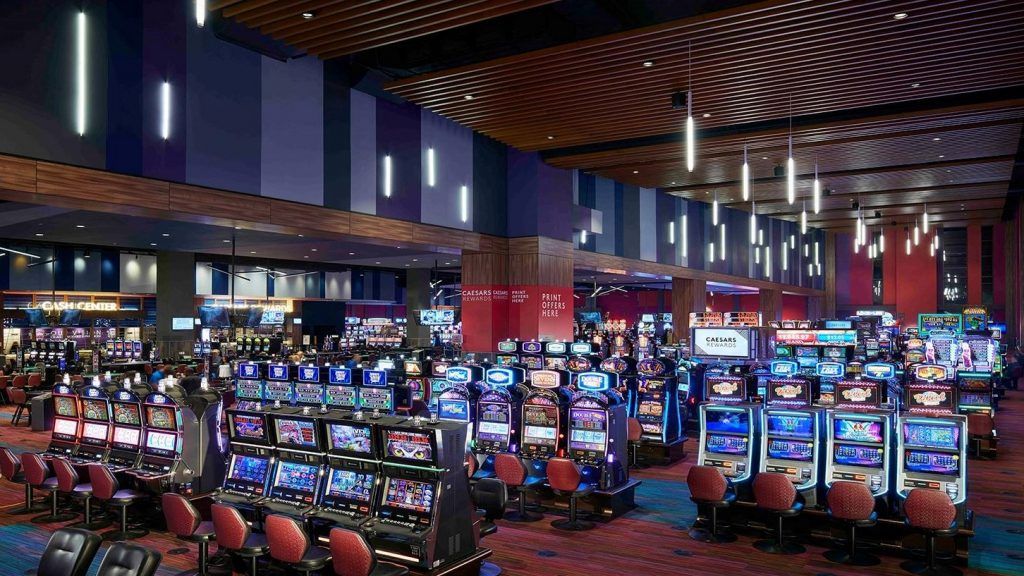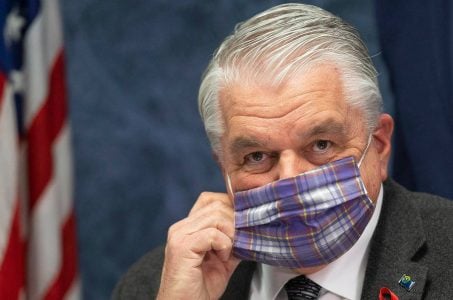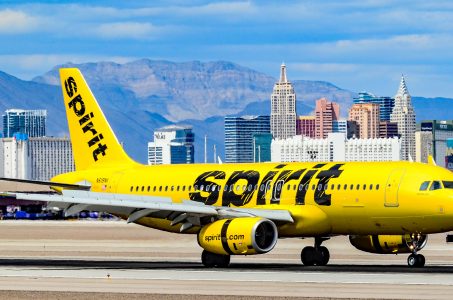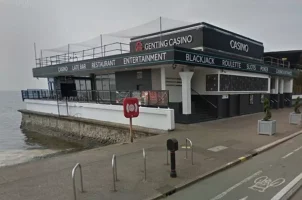Caesars Announces Plan to Reopen US Casinos That Abides by COVID-19 Social Distancing Guidelines
Posted on: May 11, 2020, 05:50h.
Last updated on: May 11, 2020, 06:03h.
Caesars Entertainment Corp. on Monday revealed that it has developed reopening plans for its 36 casinos and resorts across the country that have been closed for nearly two months by the coronavirus outbreak.

That plan will rely heavily on its locations implementing social distancing practices that have been pushed by US, state, and local health officials. Seats at table games will be reduced, according to a company news release, and Caesars casinos will operate only select slots machines and other table games to keep people a safe distance from each other.
Each casino will open only when the gaming authority in that state or tribal nation give their approval.
We look forward to welcoming our guests and team members back to our properties as soon as it is appropriate to do so,” Caesars CEO Tony Rodio said. “We are implementing new protocols focused on the wellbeing of our team members, guests and communities to create environments with high standards of sanitization and physical distancing practices. We are working closely with public health authorities, gaming regulators and infectious disease specialists to design our plan.”
Non-gaming areas, such as bars and restaurants, may open in phases, with capacity increasing in stages. Other public areas, including elevator lobbies, hotel registration desks, and casino entrances will be marked off to keep individuals six feet or further apart.
All Caesars employees will receive a mask, which they must wear during their workday. Caesars may supply some workers with additional personal protective equipment, such as gloves, depending on their responsibilities. The company also will provide training to all employees on “safety and disinfection protocols.”
Employees will also receive 10 days of paid leave through the rest of the year if they or a household member tests positive for the virus.
Up to Four Vegas Properties May Reopen Initially
Through its various brands, Caesars owns multiple properties in four communities or regions: Las Vegas, Reno/Lake Tahoe, Atlantic City, and Council Bluffs, Iowa. In the release, the company noted that properties in those areas would not open simultaneously.
Instead, the casinos will open in phases, based on “anticipated business demand,” Caesars said.
On the first quarter conference call Monday afternoon with analysts, Rodio went into a bit further detail. In Vegas, where the Caesars owns nine properties, up to four may open initially. If COVID-19 cases do not spike as Nevada’s reopening initiative continues, Rodio said on the call that Vegas properties may start the reopening process before the end of the month.
Other Caesars properties are looking to open even sooner. On Friday, Harrah’s Cherokee Casinos in North Carolina announced on Facebook that the two casinos owned by the Eastern Band of Cherokee Indians anticipate a “gradual” reopening to begin next Monday.
Last month, Caesars furloughed more than 90 percent of its US workforce after the company stated it was unsure when its properties may reopen.
Eldorado Deal Moving Toward Closure
The reopening of the Caesars casinos comes as the Las Vegas-based entertainment company will likely complete its $17.3 billion merger with Reno-based Eldorado Resorts Inc. There’s speculation that the deal, in which would the two businesses would operate under the Caesars brand but with Eldorado’s management, will close in June.
Eldorado CEO Tom Reeg said in his company’s quarterly release, also posted on Monday, that both parties remain “actively engaged” in completing the deal.
Related News Articles
Red Rock Resorts Shares Struggling, But Fund Manager Remains Bullish
‘Alarming Trend’ in Nevada COVID Cases, But No New Restrictions: Sisolak
Genting Shuts Down UK Casino Over Structural Stability Concerns
Most Popular
Mirage Las Vegas Demolition to Start Next Week, Atrium a Goner
Where All the Mirage Relics Will Go
Most Commented
-
Bally’s Facing Five Months of Daily Demolition for Chicago Casino
— June 18, 2024 — 12 Comments
















Last Comments ( 13 )
Looking forward to the end of the PC hysteria "social distancing guidelines" so that I can re-book my trip to Vegas, enjoy the crowds, & have a real Vegas good-time again.
Sandra Bishop May 17 My friend and I have been going to Cherokee and Murphy ever since they opened. I was there the day Cherokee opened and stood in that long line. I hope you will choose me to come up there now. Thank you so much
WHEN WILL KANSAS CITY MO. HARRAHS BE OPENED?
`John Dixon I agree. My Management team has not closed for any of this, we are essential employees. Nor have I wore a mask, or gloves.But I was taught to always wash my hands, cover my mouth and never cough on anyone. If your sick you shouldn't be going anywhere anyway. What happen to common sense. And did parents not teach their kids anything. We love Harrah's Casino and can not wait to see our family again.
We are ready for our casino to open again. We are sick of chickenshit liberals inserting their will in our lives. We all know, you have to bow to their ignorance to stay in business. I do not give a shit what liberal POS reads this.
Congrats on trying to reopen. I respect Cherokee's care for the Elders by closing off the reservation and I promise to practice due diligence by wearing a mask, gloves and maintaining 6-feet social distancing. We will come out of this together!
Congratulations on reopening. At Harris Cherokee casino Resort. One of my favorite places. Pray everyone stays safe and healthy.
They not opening til June 8th Check it.
They are opening may 18 by invitation only. please read carefully
When will Harrahs Joliet be opened?
Will the free money copons out of date be honor are will be replace thank you
Are patrons required to wear face masks. I can't find that information about your reopening
Would love to be invited to Harrah's Cherokee casino